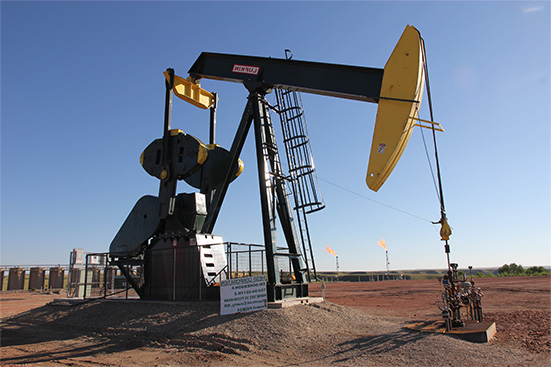
When it comes to oil and gas investment opportunities, you have two basic options: indirect and direct investment.
Indirect oil and gas investments like Master Limited Partnerships, mutual funds, and corporate stocks are made in a group of companies or a publicly-traded company where the investor shares in its market-related growth potential. Indirect investment in oil and gas has its share of risk-to-reward profile. For instance, an investor who chooses to go this route will not be able to take advantage of newly-established projects on a per-barrel basis.
On the other hand, direct investment with DW Energy allows the investor to be a part of a joint venture. The investor has direct participation in all aspects of a project and is entitled to receive a share in the revenues or the profits it generates. Of course, this kind of investment carries a different set of risks, but allows the investor the potential for a greater return of investment plus excellent tax benefits.
Deciding on the investment to choose will largely depend on your available capital, tolerance for risk, and your goals – may it be tax write-offs, income, or growth potential.
What is the major benefit of oil and gas investing?
The U.S. government feels strongly about promoting oil and gas exploration and production, and this is reflected through the multiple tax benefits available to investors. Regardless of the outcome, an investment into a drilling program will give the investor favorable tax benefits. The U.S. tax code says that any working interest of an oil and gas project cannot be thought of as a passive activity or investment. It should always be regarded as an active income. Any losses incurred can be offset against capital gains, interest, wages, and other forms of income. In case of a dry hole, a write-off is typically allowed for the whole amount invested in the year in which they occurred.
With the backing of the U.S. government, investors in oil and gas enjoy these three major tax benefits:
- Intangible Drilling Costs Deduction (IDC) – Generally, investors are eligible to write off 60 to 80 percent of their initial investment in the year in which they occurred.
- Tangible Drilling Costs Deduction (TDC) – These typically make up approximately 20 percent of the expenses and are 100 percent tax-deductible, but must be depreciated over a 7-year period.
Lease Operating Costs – Covers the direct, recurring costs involved in well production. These can be deducted over the life of the lease.
contact dw energy
Want to learn more about oil & gas investing? Our expert team can provide you with more information or schedule a consultation to talk about diversifying your investment portfolio.

Is it wise to invest in just one well?
Like most long-term investments, oil and gas investment benefits from diversification. This enables the investor to increase his overall chance of success, spread his risk, and complement his tax and investment strategies by taking advantage of significant tax deductions regardless of the project’s outcome.
What are the risks involved in oil and gas investing?
General risks apply to all investments, and oil and gas investments are no different. Even the most experienced and the biggest companies are not immune to dry holes. However, all companies have their own tolerance and individualized approach to taking exploration risks. At DW Energy we do not take undue risks, nor take part in groundbreaking trends. We stick to proven areas with strong production history to decrease our risks. It would be also good to note that despite the risks, energy will continue to be in high demand, and the oil and gas industry plays a major part in filling that demand.
At DW Energy, we believe in empowering through information. Although every investment has its own share of benefits and risks, direct oil investing has higher ROI potential and is proven to bring sustainable returns compared to indirect oil and gas investments. With years of experience in the oil and gas investment industry, DW Energy can help you formulate an investment strategy that could potentially give you long-term cash flow. We invite you to contact us anytime if you have questions.
Contact dw energy
Sources:
“How Oil Prices Impact the U.S. Economy,” Investopedia, https://www.investopedia.com/articles/investing/032515/how-oil-prices-impact-us-economy.asp
“The Tax Break-Down: Intangible Drilling Costs,” Committee for a Responsible Federal Budget, http://www.crfb.org/blogs/tax-break-down-intangible-drilling-costs
“Tangible Drilling Cost Tax Deduction,” Pocket Sense, https://pocketsense.com/tangible-drilling-cost-tax-deduction-8731476.html
“The ABCs of LOEs,” Deep Drilling Insights, http://www.deepdrillinginsights.com/uploads/2/4/1/6/24164368/the_abcs_of_loes__web_version_.pdf
